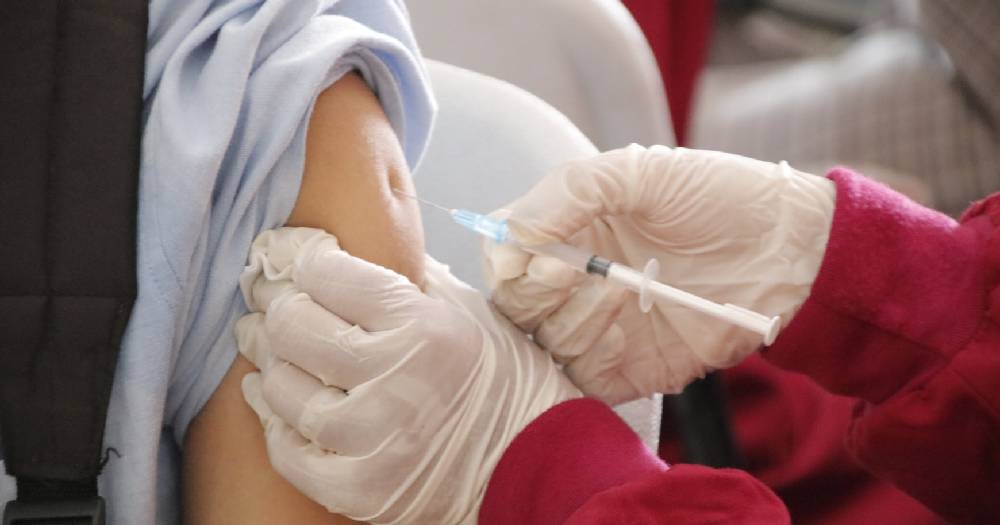Follow us on Telegram for the latest updates: https://t.me/mothershipsg
The Multi-Ministry Taskforce (MTF) has announced that individuals aged 18 to 29 will be allowed to get the booster shot of the Covid-19 vaccine from Dec. 14.
All eligible individuals will be able to receive their booster dose of the mRNA vaccine five months after completing their primary series vaccination regime.
This is in light of the recently discovered Omicron Covid-19 variant, which according to preliminary data, is at least as transmissible as the Delta variant, and may carry a higher risk of re-infection.
The MTF said that vaccinations and boosters are the best protection against an unknown and likely highly transmissible Covid-19 variant like the Omicron variant.
Post-vaccination observation time to be shortened
The MTF stressed the need to press on more urgently with the booster vaccination programme to enhance protection against infection and severe disease.
According to preliminary data from overseas, vaccinated individuals who had received a booster had significant protection against infection by the Omicron variant, and even if they were still infected, significant protection against developing severe disease which required hospital treatment.
Local and international data also indicated that there is a lower risk of serious allergic reactions such as anaphylaxis from booster vaccination doses of mRNA vaccines, the MTF added.
The MTF also announced that the post-vaccination observation time for booster shots will be reduced from 30 minutes to 15 minutes.
Preparations to deal with the Omicron variant
The MTF also stressed the need to implement additional measures in order to ensure that Singapore is prepared to deal with a spread of the Omicron variant in the community.
Previous efforts of travel restrictions and enhanced Covid-19 testing regimes have also helped stem the flow of Omicron into the country, and will allow Singapore valuable time to better understand the variant and develop relevant responses, according to the MTF.
In anticipation of a potential surge in local Omicron cases, the MTF is also putting in place contingency plans to ramp up the capacities of ICUs, hospitals, and COVID-19 Treatment Facilities (CTF).
Regular testing at the workplace and in the community will continue to be promoted in order to better facilitate early detection and rapid tracing and containment around Omicron cases.
Omicron in Singapore
As of Dec. 14, eight new cases of the Omicron variant have been detected, and six previously reported preliminary Omicron cases have also been confirmed by genomic sequencing.
This brings the total number of Omicron cases detected in Singapore to 16, with 14 imported cases and two local cases who were airport passenger service staff.
All cases are fully vaccinated and have mild or no symptoms.
13 cases are recovering in isolation wards at the National Centre for Infectious Diseases (NCID), and three cases have been discharged.
Thus far, all cases have had minimal interactions in the community prior to being isolated, and no linked cases have been detected in the community.
Active contact tracing is being conducted to ringfence close contacts of these cases and reduce transmission once infection with the Omicron variant is suspected, through the detection of S-gene target failure in their test results. This includes quarantine at designated facilities.
The National Public Health Laboratory (NPHL) subsequently confirms infection with the Omicron variant through genomic sequencing of the test samples.
Most cases are asymptomatic or with mild symptoms
The Omicron variant has now been detected in over 60 countries, mainly in Africa and Europe, according to the MTF.
Current observations from affected countries suggest that the Omicron variant is at least as transmissible as currently circulating variants, and most infections with the Omicron variant are either asymptomatic or with mild symptoms.
However, it is still currently unclear whether the Omicron variant causes an overall less severe disease than other strains of the Covid-19 virus.
In addition, preliminary real-world studies suggest some degree of immune evasion that could result in an increased risk of breakthrough infections amongst the recovered and vaccinated.
Hence, the MTF said that boosters are required to increase one’s immunity and mitigate any effects of immune evasion.
Follow and listen to our podcast here
Top image via @isengrapher/Unsplash
If you like what you read, follow us on Facebook, Instagram, Twitter and Telegram to get the latest updates.
